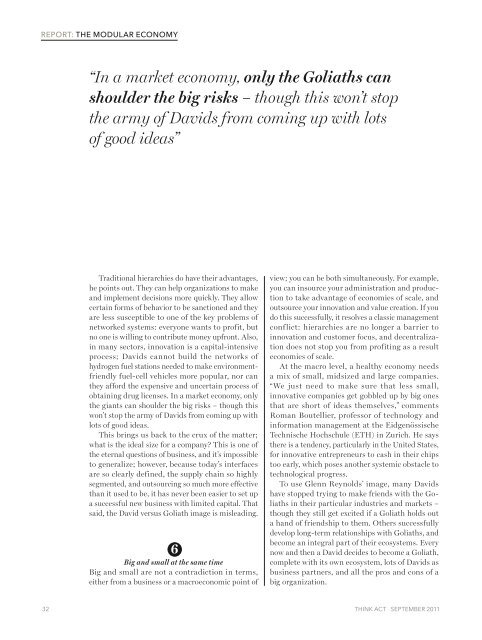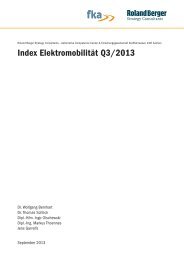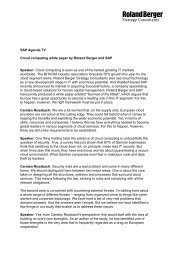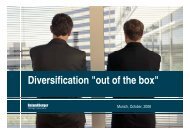think: act magazine No. 17 - Size Matters - Roland Berger
think: act magazine No. 17 - Size Matters - Roland Berger
think: act magazine No. 17 - Size Matters - Roland Berger
Create successful ePaper yourself
Turn your PDF publications into a flip-book with our unique Google optimized e-Paper software.
RepORt: the MODULAR ECONOMY“In a market economy, only the Goliaths canshoulder the big risks – though this won’t stopthe army of Davids from coming up with lotsof good ideas”Traditional hierarchies do have their advantages,he points out. They can help organizations to makeand implement decisions more quickly. They allowcertain forms of behavior to be sanctioned and theyare less susceptible to one of the key problems ofnetworked systems: everyone wants to profit, butno one is willing to contribute money upfront. Also,in many sectors, innovation is a capital-intensiveprocess; Davids cannot build the networks ofhydrogen fuel stations needed to make environmentfriendlyfuel-cell vehicles more popular, nor canthey afford the expensive and uncertain process ofobtaining drug licenses. In a market economy, onlythe giants can shoulder the big risks – though thiswon’t stop the army of Davids from coming up withlots of good ideas.This brings us back to the crux of the matter;what is the ideal size for a company? This is one ofthe eternal questions of business, and it’s impossibleto generalize; however, because today’s interfacesare so clearly defined, the supply chain so highlysegmented, and outsourcing so much more effectivethan it used to be, it has never been easier to set upa successful new business with limited capital. Thatsaid, the David versus Goliath image is misleading.Big and small at the same timeBig and small are not a contradiction in terms,either from a business or a macroeconomic point ofview; you can be both simultaneously. For example,you can insource your administration and productionto take advantage of economies of scale, andoutsource your innovation and value creation. If youdo this successfully, it resolves a classic managementconflict: hierarchies are no longer a barrier toinnovation and customer focus, and decentralizationdoes not stop you from profiting as a resulteconomies of scale.At the macro level, a healthy economy needsa mix of small, midsized and large companies.“We just need to make sure that less small,innovative companies get gobbled up by big onesthat are short of ideas themselves,” commentsRoman Boutellier, professor of technology andinformation management at the EidgenössischeTechnische Hochschule (ETH) in Zurich. He saysthere is a tendency, particularly in the United States,for innovative entrepreneurs to cash in their chipstoo early, which poses another systemic obstacle totechnological progress.To use Glenn Reynolds’ image, many Davidshave stopped trying to make friends with the Goliathsin their particular industries and markets –though they still get excited if a Goliath holds outa hand of friendship to them. Others successfullydevelop long-term relationships with Goliaths, andbecome an integral part of their ecosystems. Everynow and then a David decides to become a Goliath,complete with its own ecosystem, lots of Davids asbusiness partners, and all the pros and cons of abig organization.32 THINK Act september 2011

















